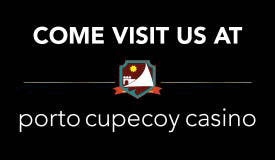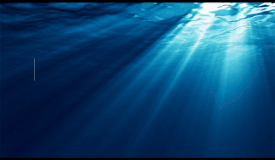Eldridge further elaborated on his points in particular points 2 and 3 as it pertains to teenage pregnancy in particularly the emigrant population (breeding ground on the French Side), illiteracy among these economic citizens who carry on the tradition of their parents and thus society not being able to produce people who can actively take part in the "right" development of the country. He further went into the land crisis on the island where he said that a people without land cease to exist and therefore laws should be adapted to protect the people land. For this article I would like to however focus on point 1 – The Cost of Living.
There is a saying, by unknown author, which goes "Money is to People as Water is to Fish." In other words, we live our economic lives immersed in money. We're unaware of how it affects us. When the water is polluted, the fish sicken and die. When money is polluted, we suffer all kinds of ill effects without realizing the cause. Another interesting quote is "As water is to fish, so is society to people" - Gervase Vernon -.
Vernon goes on to say "Perhaps fish only become aware of the existence of water when they are taken out of it; are landed gasping on the river bank by a fisherman. Then they realise its importance and know that, if they are not returned within minutes, they will die. So it is for us. People, especially modern people, see themselves as independent actors who forge their own lives, who create their own meaning out of their lives. Yet take a man out of society into solitary confinement and in short order a number will go quite mad. We know why water is so important for fish, but why is society so important for people? Clearly we are to a greater extent social beings than modern models might have us think. One reason is that many of things we take for granted are actually social goods. By social goods I mean things that only exist because they, or belief in them, are shared by a whole society. Language, for example is a social good. It only exists, is only useful for communication, because a whole society shares the language. It already exists before we are born; the individual does not create it. We cannot ascribe arbitrary meanings to words. Money is also a social good. Money only has value because individuals in a society share a belief in its value. If they lose this belief (as in societies with hyper-inflation), the value disappears." Source: (http://www.ncbi.nlm.nih.gov/pmc/articles/PMC3020064/)
That being said, another interesting word is that of community. "Community" comes from the Latin munus, which means the gift, and cum, which means together, among each other. So community literally means to give among each other. Therefore I define my community as a group of people who welcome and honor my gifts, and from whom I can reasonably expect to receive gifts in return. - Bernard Lietaer – From the origin of the word one can decipher that sharing, reciprocity, and social cohesion are engraved.
Man tends to measure the success or prosperity of a country or nation by the Gross Domestic Product (GDP). A grave blunder of the GDP as a measure is that it is a false measure and does not capture the essence of economic prosperity. One such blunder is that it does not account for the value of unpaid work. Another blunder is that it does not account for a Balance Sheet for natural resources. We extract resources from the earth to make products for consumption and when those products are sold we measure economic activity which GDP tries to measure. But what about the extraction of the earth's resources which are not being replenished at a rate equivalent to continue producing goods? How can you register economic growth when at the same speed natural resources are being depleted? GDP measure is like taking off in an aircraft at night with only the airspeed indicator working. I assure you without other instruments working such as the altimeter (measures height above sea level), attitude indicator (shows if the aircraft wings are level or not), etc you will meet your demise.
Economic growth in the industrialized revolution era took on a different set of variables then it does today. The context of capitalism has changed since then where the very meaning of the word capitalism no longer means the same nor does a so called Free-Enterprise system. The fundamentals of capitalism in the past were based on savings, investing (capital formation), private citizens, and hard work. Today, capitalism is based on credit, speculation, Government collusion with Big Corporations, and bailouts. The cost of living has now become a function of credit. Credit in of itself is a hybrid to the previous trading systems starting from barter up to symbolic money which were backed by the preferred commodities of gold and silver. In the next part of this article I will show you what has been taken place to make our money polluted and how this affects the cost of living and our very lives.
Emilio Kalmera













